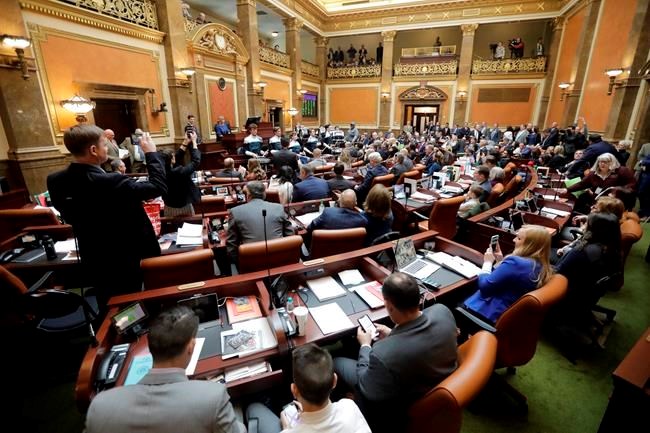SALT LAKE CITY — Utah lawmakers passed new regulations on abortion this year, including a measure approved by the Republican-controlled Legislature Thursday that would ban most abortions if Roe v. Wade is overturned.
It comes as abortion opponents around the country hope the Supreme Court will reconsider the landmark ruling with new conservative justices. If the Utah measure goes into effect, it could mean felony charges for a physician or a woman who ended her own pregnancy.
Also headed for GOP Gov. Gary Herbert’s desk is a requirement for abortion clinics and medical facilities to cremate or bury fetal remains. Several states are considering similar measures. Supporters say they allow for more dignity, but opponents argue they chip away at abortion rights.
Another proposal requiring a woman be shown an ultrasound before she could get an abortion failed after all six female senators, both Republicans and Democrats, walked out in protest.
Herbert, who generally opposes abortion, said it sent a message.
“I think it was a loud message and one I think we, as men, ought to take hard look at. Are we listening? Are we getting all the information we need to?” he said. He didn't say whether he would sign or veto any of the bills.
Utah barred abortion after 18 weeks last year, becoming one of several states to adopt strict bans. Like the other measures it has been blocked amid litigation. Many conservatives hope one of those court cases could lead to the overturning of the 1973 case legalizing abortion.
If that happens, the new measure says Utah would ban all abortions except in cases like rape and serious threat to the health of the mother. Supporters say it would prepare the state to end elective abortions if the legal landscape changes.
“This bill is meant to discourage the taking of a human life,” said Republican Rep. Karianne Lisonbee.
Democratic Rep. Suzanne Harrison argued that it would only make it more difficult to get a safe abortion. “This extreme bill will hurt women,” she said. “To be clear, women will die.”
The measure regulating fetal remains, meanwhile, comes after the Supreme Court upheld a similar Indiana law signed by then-Gov. Mike Pence. The Utah requirements also apply to miscarriages at medical facilities. Supporters say they create space if people need to grieve, but opponents say the measures stigmatize abortion and can make it harder to provide the procedure.
Here’s a look at other work by lawmakers this year:
— Revisions to an anti-gerrymandering law that voters passed in 2018 would drop requirements that lawmakers argued could undermine their
— Another compromise on education funding would change a provision of the Utah Constitution that requires income tax revenue be used for education. Lawmakers say the change is needed to bolster a faltering sales tax base and add stability, though critics worry it could ultimately undermine education spending in a state where it’s a chronic concern. The change would have to be approved by voters.
— Lawmakers also passed a bill removing the threat of jail time for consenting adult polygamists, saying it would help people come out of shadows and report problems without fear of prosecution. Some worried, though, it could empower abusers.
— Another measure would require pornography producers to put warning labels on obscene content. Supporters said it would help address the widespread availability of porn online, though the adult entertainment industry has said it could violate the First Amendment.
Lindsay Whitehurst, The Associated Press

